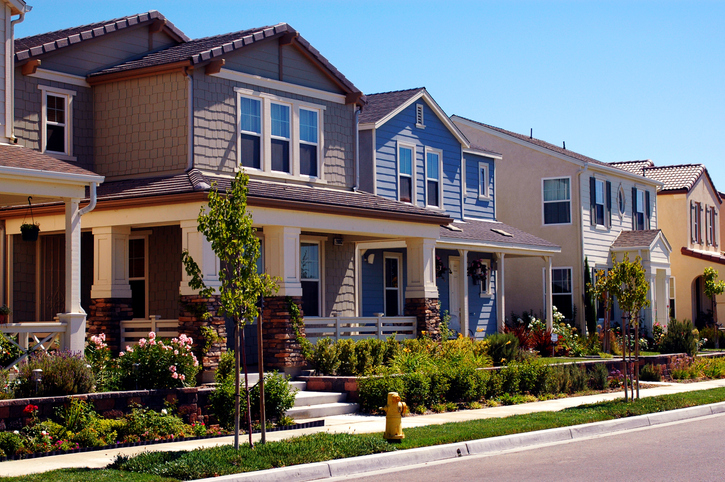The Future of Real Estate: Trends and Opportunities to Enjoy
As the property landscape evolves, it becomes significantly necessary to understand the arising patterns and opportunities that will certainly specify the market in the coming years. Technological developments are reshaping transactional processes, while an expanding concentrate on sustainability shows altering customer priorities. In addition, market changes and the rise of remote job are affecting housing preferences, especially in country areas. With these characteristics at play, a better exam of the adaptations and methods necessary for success exposes fascinating opportunities that could reshape investment techniques and market actions.
Technological Innovations in Property
In recent times, the real estate industry has actually embraced a wave of technological advancements that are changing conventional practices. These advancements have dramatically improved effectiveness, transparency, and decision-making procedures within the market. One of the most noteworthy innovations is the surge of big data analytics, which enables realty professionals to evaluate market trends, predict residential property worths, and recognize financial investment chances with unmatched accuracy. This data-driven approach makes it possible for stakeholders to make enlightened decisions and minimizes the risks related to property purchases.
Additionally, online fact (VR) and increased reality (AR) innovations are revolutionizing property advertising by providing immersive experiences for prospective buyers and lessees. These devices permit customers to perform digital excursions of properties, consequently streamlining the search process and boosting consumer interaction. Moreover, blockchain technology is getting traction as a way to safeguard transactions and maintain transparent documents, thereby reducing fraudulence and accelerating the closing procedure.
Smart home innovations are additionally coming to be significantly widespread, enabling house owners to keep track of and manage their residential properties remotely (Real Estate Lockhart). Collectively, these technological advancements are improving the landscape of realty, fostering an extra effective, transparent, and customer-centric sector
Demand for Lasting Properties
As customers progressively focus on ecological responsibility, the need for lasting properties has surged in the property market. This shift mirrors a broader social trend towards sustainability, with capitalists and buyers looking for residential properties that decrease eco-friendly influence while taking full advantage of power performance. Features such as photovoltaic panels, energy-efficient appliances, and sustainable building materials are currently seen as crucial rather than optional.

Furthermore, the surge of eco-friendly areas, which focus on walkability and accessibility to public transport, better highlights this pattern. These developments appeal to eco aware customers and advertise a healthier way of life.
As the need for lasting buildings remains to rise, sector stakeholders should adjust to these assumptions. By accepting ingenious practices and focusing on sustainability, the real estate industry can not only meet consumer demand however additionally add to a more sustainable future.
Changing Purchaser Demographics

In addition, the maturing population is reshaping need for housing. Baby boomers are seeking scaled down houses that use accessibility and low upkeep, typically favoring urban settings with nearby features. This shift check out here necessitates an emphasis on multi-generational real estate services that accommodate differing requirements.
Moreover, cultural variety is playing a crucial duty in property trends. Buyers from different histories bring distinctive preferences and expectations, motivating programmers to produce inclusive settings that satisfy a bigger target market. As these market shifts remain to evolve, property professionals should adapt their methods to attend to the needs of these varied purchasers. Recognizing these changing demographics will certainly be vital in identifying crafting and arising possibilities customized marketing methods that reverberate with the varied demands these days's market.
Rise of Remote Job Effect
Progressively, the surge of remote job is transforming the property landscape, triggering significant shifts in customer choices and place options. As employees enjoy the flexibility of functioning from home, several are reviewing their household demands, bring about a rise popular for buildings in suv and rural areas. This trend is primarily driven by the need for even more roomy living environments that can suit home workplaces and a far better lifestyle.
Moreover, city facilities, as soon as the prime focus for buyers, are experiencing a steady decrease popular as people prioritize price and access to nature. Consequently, realty designers and financiers are shifting their emphasis toward residential or commercial properties that use home workplace rooms, outside features, and distance to necessary services.
Real estate professionals must adapt to the changing choices of buyers, stressing the importance of lifestyle factors in their advertising techniques. The effects of remote job on real estate are profound, shaping future fads and opportunities.
Financial Investment Opportunities in Emerging Markets
Investment chances in emerging markets are regularly standing out from real estate investors looking for diversity and growth capacity. These markets, characterized by rapid financial growth, boosting urbanization, More Info and a growing middle course, existing special prospects for savvy investors. Nations in Southeast Asia, Africa, and Latin America are seeing significant infrastructure renovations and positive government policies, which further boost their charm.
Genuine estate industries such as domestic, commercial, and logistics are experiencing heightened need because of metropolitan migration and evolving consumer choices. Significantly, cities like Ho Chi Minh City, Nairobi, and Medellín are coming to be hotspots for financial investment because of their increasing economies and youthful demographics.
Investors ought to conduct detailed market analyses to determine key patterns, such as changes in populace dynamics and financial security, which can affect property values. In addition, collaborations with local property companies can facilitate successful entrance and navigating in these markets.
However, it's important to be conscious of potential dangers, consisting of political instability and regulatory difficulties. By considering these factors and embracing a long-term point of view, capitalists can efficiently profit from the financially rewarding opportunities emerging in these developing regions.

Verdict
In conclusion, the future of property will certainly be dramatically influenced by technological improvements, an expanding focus on sustainability, and evolving buyer demographics. The increase of remote job is reshaping housing choices, particularly in suburban locations. In addition, arising markets his response existing considerable investment opportunities for stakeholders ready to adjust to these modifications. Browsing this transforming landscape will require strategic collaborations and a keen understanding of market dynamics to exploit on the patterns shaping the industry.
As the real estate landscape progresses, it becomes significantly vital to understand the arising fads and chances that will specify the industry in the coming years. One of the most notable innovations is the increase of big information analytics, which enables real estate specialists to analyze market fads, anticipate home worths, and determine investment chances with extraordinary accuracy.As customers increasingly prioritize ecological responsibility, the demand for lasting buildings has risen in the actual estate market. The implications of remote work on actual estate are extensive, shaping future fads and opportunities.
Investment possibilities in arising markets are constantly attracting interest from genuine estate investors looking for diversification and growth possibility.